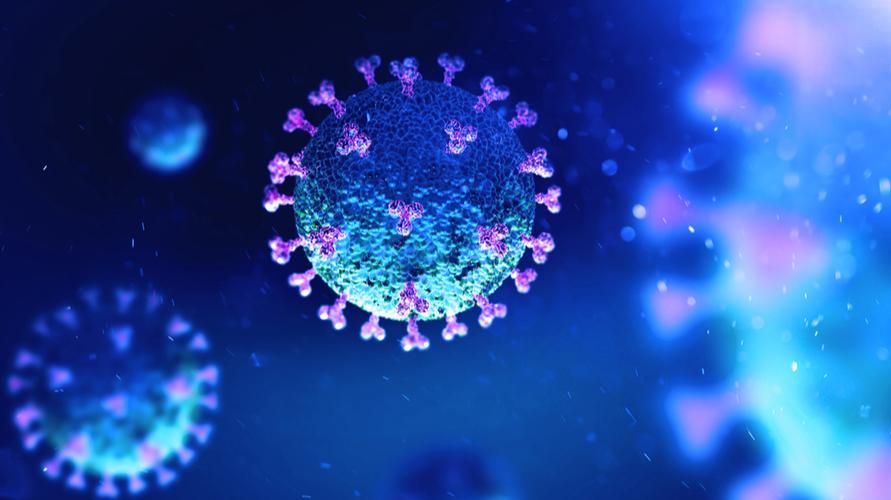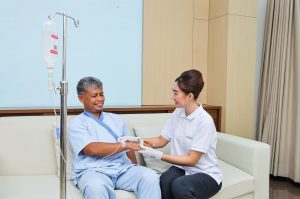The Minister of Health, Budi Gunadi Sadikin, stated that cases of the Omicron variant of the Covid virus had been detected in Indonesia. Implementing strict health protocols and getting vaccines are still the main ways to prevent new variants of this virus. Thursday (16/12), Minister of Health Budi Gunadi Sadikin confirmed that there was one case of the Omicron variant of the Covid-19 virus in Indonesia. This mutation of the SARS-CoV-2 variant of the Omicron virus was detected in one of the janitors at the Wisma Atlet RSDC.
So, what is there to know about this new variant? Is it true that the transmission is faster than the Delta variant? Check out the full review below.
In a press statement broadcast by the Indonesian Ministry of Health’s official Youtube channel (16/12), Budi Gunawan Sadikin as the health minister confirmed that there was one Indonesian patient who had been confirmed to be exposed to the Omicron variant. “The Ministry of Health has detected an Omicron confirmed patient N on December 15,” said Budi Gunadi. The patient is one of the cleaning workers at the Wisma Atlet Hospital. In addition to patient N, it is also known that there are two other patients who have tested positive for Covid-19. However, it has been confirmed that only one of them is caused by the Omicron variant. All three are known to be asymptomatic and undergoing quarantine at the Athlete’s House. Both PCR test results were negative. In addition to the case of patient N, Budi Gunadi also said that there were five other cases thatprobable (possible) Omicron in Indonesia. “These five people are still probable. The PCR samples have been sent to the Balitbangkes of the Ministry of Health for genome sequencing , in the next few days we hope we can confirm whether this is Omicron or not,” he added. The five suspected cases of the Omicron variant consist of two Indonesian citizens who recently returned from overseas trips, namely the United States and Britain, and are currently undergoing quarantine at the Wisma Athlete Hospital. Meanwhile, the other three are foreigners from China who came to Manado and are currently undergoing quarantine in Manado.
What is the Omicron variant of Covid-19?
In response to the confirmation of a positive case of the Omicron variant in Indonesia, there’s nothing wrong with knowing more about this new variant. One of the nature of viruses is to undergo continuous mutations over time. The Covid-19 virus is no exception. After the Delta variant a few months ago, WHO announced a new mutation of the Covid-19 virus called Omicron that needs to be watched out for. Omicron or variant B.1.1.529 was first reported in South Africa on 24 November 2021, although South Africa is not its country of origin. Covid-19 transmission infections are reported to have experienced a sharp increase in several areas of South Africa to coincide with the detection of a new variant of Omicron. This faster transmission than the previous variant has led WHO to define Omicron as a variant of concern (VOC) that has the potential to increase public health risks globally. Until now, research related to this Omicron variant is still ongoing.
Is it true that the Omicron variant of covid is more dangerous?
Based on the latest update from WHO on November 26, 2021, mutations that occur in the Omicron variant can have an impact on the behavior of the virus, including how easily it spreads and the severity of the disease it causes. Here are some of the latest facts about the Omicron variant that you must know.
1. Omicron transmission is faster
Many sources say that Omicron is more contagious than other variants, such as the Delta variant. In his press statement, Budi Gunadi stated that this was true. He added, “In the UK, which initially had 10 cases per day, it rose to around 100 per day, and now it has 70,000 cases per day, exceeding Indonesia’s highest daily case last July.”
2. Severity
It is not yet clear whether infection with the Omicron virus causes more severe disease than the previous mutation of the Covid-19 variant. Preliminary data do show an increase in hospitalizations in South Africa. However, it is not yet known whether this increase is due to the new variant of Omicron or not. Budi Gunadi stated that the hospitalization rate for Omicron compared to the Delta variant is currently still low. However, its emergence must still be watched out for because it can put pressure on health facilities, such as hospitals.
3. Symptoms of Omicron
Many sources reveal the difference in symptoms caused by the Omicron variant with other COVID-19 variants. However, in its latest circular, WHO has not yet informed the difference between Omicron symptoms and other variants. Based on reports, the initial infection occurs at a younger age, such as college students and tends to cause mild symptoms. For this reason, further research is needed to ascertain the severity and progression of the disease due to this new variant.
4. The possibility of repeated infections
Limited information suggests that an increased risk of recurrent infection in Omicron is likely. This means that those of you who have previously been exposed to Covid-19 can also be more susceptible to Omicron than other variants. However, further research is needed regarding the certainty of this information.
5. Vaccine effectiveness against Omicron . variants
Although it is still under review regarding the potential for a vaccine against the Omicron variant, WHO still makes the Covid-19 vaccine an important thing to reduce the severity of illness and death from the Covid-19 virus.
How to prevent and slow down the transmission of Omicron variants in Indonesia
The detection of one Omicron case in Indonesia has made the Indonesian Ministry of Health urge the public not to panic, stay alert, and follow health protocols. Before it was discovered that Omicron had been detected in Indonesia, the Indonesian government through the Covid-19 Task Force issued Circular No. 23 of 2021 concerning International Travel Health Protocols during the Covid-19 Pandemic regarding new quarantine procedures. In this policy, there are several changes that are the main focus of preventing Omicron variants from entering Indonesia, including:
- Prohibition of entry of foreign nationals (foreigners) with a travel history of the last 14 days from South Africa, Botswana, Namibia, Zimbabwe, Lesotho, Mozambique, Eswatini, Malawi, Angola, Zambia and Hong Kong
- Indonesian citizens (WNI) with a history of travel from these countries must be quarantined for 14 days
- Increase the quarantine time for foreigners and Indonesian citizens from abroad (outside these countries), which was only 3 days to 7 days of quarantine
Notes from SehatQ
In addition to tightening quarantine procedures from abroad, Budi Gunadi also appealed to the public not to travel abroad unnecessarily, in connection with the year-end holiday. “Right now, Indonesia is a much safer country compared to many other countries outside. As much as possible, reduce unnecessary overseas trips,” concluded Budi Gunadi. Implementing strict health protocols and getting vaccinated are also still the main efforts that need to be done to prevent the spread of Covid-19. Remember to always use a mask that fits your face, use a double mask, wash hands with soap and running water as often as possible, keep a distance of at least 1.5 meters from other people, ensure air circulation/ventilation, avoid closed rooms, avoid crowds, and apply proper coughing and sneezing etiquette. You also need to get the Covid-19 vaccination immediately if you haven’t got it yet. The Covid-19 vaccine, of any type, has been shown to reduce the risk of death and hospitalization due to severe symptoms.



